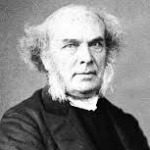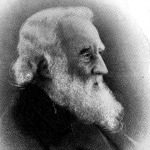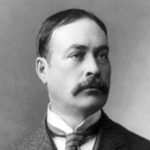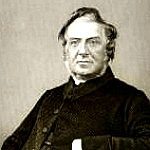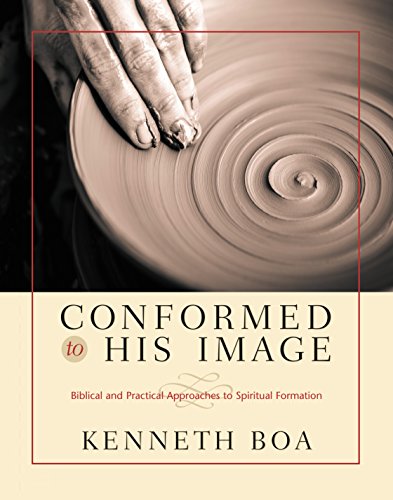Quotes about Christlikeness
Free and warm reception into the divine favor is the strongest of all motives in leading a man to seek conformity to Him who has thus freely forgiven him all trespasses.
God’s ultimate goal for us, however, is that we be truly conformed to the likeness of His Son in our person as well as in our standing… Jesus did not die just to save us from the penalty of sin, nor even just to make us holy in our standing before God. He died to purify for Himself a people eager to obey Him, a people eager to be transformed into His likeness… This process of gradually conforming us to the likeness of Christ begins at the very moment of our salvation when the Holy Spirit comes to dwell within us and to actually give us a new life in Christ. We call this gradual process progressive sanctification, or growing in holiness, because it truly is a growth process.
Transforming Grace, NavPress, 1991, p. 105. Used by permission of NavPress – www.navpress.com. All rights reserved. Get this book!
God never allows pain without a purpose in the lives of His children. He never allows Satan, nor circumstances, nor any ill-intending person to afflict us unless He uses that affliction for our good. God never wastes pain. He always causes it to work together for our ultimate good, the good of conforming us more to the likeness of His Son (see Romans 8:28-29).
Transforming Grace, NavPress, 1991, p. 139. Used by permission of NavPress – www.navpress.com. All rights reserved. Get this book!
The good that God works for in our lives is conformity to the likeness of His Son. It is not necessarily comfort or happiness but conformity to Christ in ever-increasing measure in this life and in its fullness in eternity.
The Practice of Godliness, NavPress, 1996, p. 120. Used by permission of NavPress – www.navpress.com, All rights reserved. Get this book!
We mistakenly look for tokens of God’s love in happiness. We should instead look for them in His faithful and persistent work to conform us to Christ.
Trusting God, 1988, p. 150. Used by permission of NavPress – www.navpress.com, All rights reserved. Get this book!
There are many who preach Christ, but not so many who live Christ. My great aim will be to live Christ
We see Christlikeness as something we are royally screwing up, when we should it as something we already possess but need to grow into.
Apart from our union with Christ every effort to imitate Christ, no matter how noble and inspired at the outset, inevitably leads to legalism and spiritual defeat. But once you understand the doctrine of union with Christ, you see that God doesn’t ask us to attain to what we’re not. He only calls us to accomplish what already is. The pursuit of holiness is not a quixotic effort to do just what Jesus did. It’s the fight to live out the life that has already been made alive in Christ.
Be Who You Are by Kevin DeYoung taken from The Hole in Our Holiness by Kevin DeYoung, copyright 2012, Crossway Books, a division of Good News Publishers, Wheaton Illinois 60187, www.crosswaybooks.org, p. 100.
If you want to be Christlike you need to have communion with Christ, and if you want communion with Christ you need to do it on His terms with the channels of grace He’s provided [prayer, Bible reading, church fellowship, Lord’s table]. And that means the only way to extraordinary holiness is through ordinary means.
Abide and Obey by Kevin DeYoung taken from The Hole in Our Holiness by Kevin DeYoung, copyright 2012, Crossway Books, a division of Good News Publishers, Wheaton Illinois 60187, www.crosswaybooks.org, p. 135.
To become like Christ is the only thing in the world worth caring for, the thing before which every ambition of man is folly and all lower achievement vain.
How can all things be worked together by God for good? The answer is at hand. It is because God’s ultimate purpose is to make us like Christ. His goal is the complete restoration of the image of God in His child! So great a work demands all the resources which God finds throughout the universe, and He ransacks the possibilities of joys and sorrows in order to reproduce in us the character of Jesus.
There is nothing more important to learn about Christian growth than this: Growing in grace means becoming like Christ.
We must never forget – if we are to grow in grace, and therefore grow like Christ – that the One we trust, love, and serve is a crucified Savior. To follow Him means taking up the cross, as well as denying ourselves. It means a crucified life.
Perhaps the most wonderful thing of all is this: God lifts us not only from what we are by nature to what Adam was in the Garden of Eden, but to what Adam was to become in the presence of God, and would have been had he persevered in obedience. The gospel does not make us like Adam in his innocence – it makes us like Christ, in all the perfection of His reflection of God.
Scripture speaks about God working everything together “for the good” of those who love him (Rom. 8:28). But what is this “good?” It consists of believers being conformed (changed and remade) to the image of Christ (Rom. 8:29). Thus, all the experiences of life are intended, under the sovereign hand of God, to help us to grow towards the great goal of the Christian life – Christ-likeness.
Healthy Christian Growth, by Permission of the Banner of Truth Trust, Carlisle, PA. 1991, p. 16.
How do we bring glory to God? The Bible’s short answer is: by growing more and more like Jesus Christ.
Sinclair B. Ferguson Healthy Christian Growth, The Banner of Truth Trust, Carlisle, PA. 1991, p. 2.
Did Christ finish His work for us? Then there can be no doubt but He will also finish His work in us.
When Jesus commands us to be perfect as our Father in heaven is perfect (Matt. 5:48), this simply shows that God’s own absolute moral purity is the standard toward which we are to aim and the standard for which God holds us accountable. The fact that we are unable to attain that standard does not mean that it will be lowered; rather, it means that we need God’s grace and forgiveness to overcome our remaining sin. Similarly, when Paul commands the Corinthians to make holiness perfect in the fear of the Lord (2 Cor. 7:1), or prays that God would sanctify the Thessalonians wholly (1 Thess. 5:23), he is pointing to the goal that he desires them to reach. He does not imply that any reach it, but only that this is the high moral standard toward which God wants all believers to aspire.
Biblicaltraining.org, www.biblicaltraining.org/library/sanctification-wayne-grudem#sthash.LLBUl9Ih.dpuf. Used by Permission.
The difficulty of the commands is merely a reflection of the greatness of the Gospel. Jesus’ expectation is built on his anticipation of what God will do in the lives of His people! Jesus demands the humanly impossible precisely because His provisions are supernatural. The magnitude of Jesus’ commands must mean, therefore, that they are tied to the grandest promise of all, namely, the promise that God himself will work in every circumstance to conform us to the image of Christ (Rom. 8:28-29).
It is inconceivable that a person could fall in love with the Redeemer in the biblical sense and not long to be conformed to the object of that affection.
We are to reflect Christ in all that we say and do. And the Christ of Scripture is the humble, suffering servant who, in spite of great opposition, false accusations, and public ridicule, remained faithful to the heavenly calling.
Appointed to Preach, Christian Focus Publications, 1999, p. 70. Get this book!
None can know their election but by their conformity to Christ; for all who are chosen are chosen to sanctification.
Press right home to your conscience the question, “What do I have of the mind of Christ?” Does my heart answer, does my disposition correspond, to the holy, meek, humble, forgiving, benevolent, patient, self-denying mind of Christ? Do men who know the beauty and glory of the Original, as it is delineated on the page of the gospel, when they see me, say, “There is the image of Christ!” Or do they look skeptically on, and after standing in silence for some time, profess they can see little or no resemblance? Oh, be satisfied with nothing short of a copy of Christ’s heart into yours!
The perfection of God’s love for us isn’t measured by how well He’s managing our agenda for life. No, the perfection of God’s love for us is seen in the goal He’s set for our life, and that goal is nothing less than likeness to the Son He loves.
The Story of Love by Michael Lawrence taken from Biblical Theology by Michael Lawrence, copyright 2010, Crossway Books, a division of Good News Publishers, Wheaton Illinois 60187, www.crosswaybooks.org. Page 151.
Christlikeness is the substance of spiritual dedication.
A Balance of Faith and Effort from Our Sufficiency in Christ, 1991, Crossway Books, a division of Good News Publishers, Wheaton Illinois 60187, www.crosswaybooks.org. p. 201. Get this book!
Ultimately we become like what we worship. If we worship money, we become materialistic. If we worship power and prestige we become cold and calloused. If we worship an idol, we become as spiritually dead and lifeless as a stone. On the other hand, if we worship Christ, we will be conformed to His image… If He is our ever-increasing preoccupation then we are imperceptibly being transformed into His image by the Holy Spirit.
The Glory of the New Covenant – Part 7, This article (www.gty.org/resources/sermons/47-21/the-glory-of-the-new-covenant-part-7) originally appeared at www.gty.org. © 1969-2008. Grace to You. All rights reserved. Used by permission.
Sanctification doesn’t happen by osmosis. We can’t starve ourselves spiritually and still expect to grow in the likeness of Christ. All the facets of Scripture – all its rich benefits and blessings – are not available to those who fail or refuse to open it and study.
It is not great gifts that God blesses so much as it is great likeness to Christ.
To gain entire likeness to Christ, I ought to get a high esteem of the happiness of it. I am persuaded that God’s happiness is inseparably linked in with His holiness. Holiness and happiness are like light and heat. God never tasted one of the pleasures of sin. Christ has a body such as I have, yet He never tasted one of the pleasures of sin. The redeemed, through all eternity, will never taste one of the pleasures of sin; yet their happiness is complete… Every sin is something away from my greatest enjoyment… The devil strives night and day to make me forget this or disbelieve it. He says, Why should you not enjoy this pleasure as much as Solomon or David? You may go to heaven also. I am persuaded this is a lie — that my true happiness is to go and sin no more.
When [pastors] measure whether or not (they) are successful, it must be by this criterion, namely, are we seeing the saints growing to completeness in Jesus Christ?
Feed My Sheep, ed. Don Kistler, Soli Deo Gloria Ministries, 2002, p. 29. Get this book!
For at the heart of Christian ministry must always be the molding of people into the image of Christ, and the full and faithful teaching of God’s truth is the means the Spirit uses to accomplish this goal.
The Son takes shape in those who abandon themselves to Him. Christ forms Himself in the lives of those who will let go of all the forms of life in which they have shaped on their own. Christ takes shape in a life that is willing to become putty in God’s hands. Christ presses the shape of His own face into the clay of our soul when we cease to be hard and resistant, and when we take our own amateur hands off and admit that we are not such good artists as He is.
O, That Christ Would Be Formed in You, Galatians 4:12-20, May 15, 1983, Used by Permission, www.DesiringGod.org.
God does not accept me just as I am; He loves me despite how I am. He loves me just as Jesus is; He loves me enough to devote my life to renewing me in the image of Jesus.
Seeing With New Eyes, P&R Publishers, 2003, p. 169-170. Get this book!
[Christians] press towards [Christlikeness], if they do not reach it. They may not attain to it, but they always aim at it. It is what they strive and labor to be, if it is not what they are.
He that would be conformed to Christ’s image, and become a Christlike man, must be constantly studying Christ Himself.
Christ will never be found the Savior of those who know nothing of following His example. Saving faith and real converting grace will always produce some conformity to the image of Jesus (Col. 3:10).
God’s primary concern is not to change the circumstances, but to change His children in the midst of the circumstances.
His purpose for the lives of His children is Christlikeness. Though we often want comfort and pleasure and prosperity and healing, the Lord knows these are not always the means that will produce in us the holiness He desires. Sometimes God shows His love by removing the trial. Often He shows His love by permitting the trial to remain, knowing just the right pressure in our lives that will produce in us Christlikeness – both His greatest desire and our greatest good.
The false gospel, the man-centered position states that I need to clean myself up in order for God to accept me. The true gospel, the God-centered position teaches that I come to God broken and He begins the process of cleaning me up, making me into a masterpiece. The former is self-reformation. The latter is God-transformation. The former is God will only accept a masterpiece. The latter is God will only make a masterpiece. So we come to God messy, with nothing to offer and then God in His divine love begins to shape us into the beautiful image of Jesus Christ (see Eph. 2:10).
Does that mean He plays favorites for the likes of outspoken Christians like Tim Tebow or Drew Brees? Of course. Because God loves those who are His, even as He loves His own Son, God is certain to favor them. That favor, however, isn’t a path to winning a football game, but is instead the path to true victory, becoming more like Jesus. God isn’t glorified in giving Tim Tebow unlikely victories that somehow redound to God’s glory. No, God is glorified in making His children, including Tim Tebow, more like His Son. Sometimes that means leading them to the thrill of victory. Sometimes it means leading them through the agony of defeat.
Ask RC: Does God Really Decide, and Care Who Wins a Football Game? January 28, 2014, Used by Permission.
We become like that which we behold. We will never be transformed into the likeness of God or be conformed to the image of Christ Jesus until we learn how to behold His beauty. To see Him is to be like Him. As David beheld the beauty of the Lord, as he meditated on the glorious perfections and passions of God’s character, he became more like God. More than that, he fell ever more in love with God.
Copied from: Pleasures Evermore: The Life-Changing Power of Knowing God by Sam Storms, © 2000, p. 54-55. Used by permission of NavPress – www.navpress.org. All rights reserved.
If traces of Christ’s love-artistry be upon me, may He work on with His divine brush until the complete image be obtained and I be made a perfect copy of Him, my Master.
In order to mold His children, God sometimes has to melt them down.
When the wife of missionary Adoniram Judson told him that a newspaper article likened him to some of the apostles, Judson replied, “I do not want to be like a Paul or any mere man. I want to be like Christ. I want to follow Him only, copy His teachings, drink in His Spirit, and place my feet in His footprints. Oh, to be more like Christ!”
The communion of the gospel is by seeing as well as by hearing. This double strand runs all through the Bible: image and word, vision and voice, opening the eyes of the blind and unstopping the ears of the deaf. Just as Jesus is the Word of God and the Image of God. The Word become visible, the Image audible… We are familiar enough with the verbal element of evangelism. Where is the visual?
I have put my soul, as a blank [check], into the hands of Jesus Christ my Redeemer, and desired Him to write upon it what He pleases. I know it will be His own image.
All our spiritual disciplines should be practiced in pursuit of Christlikeness. We pursue outward conformity to Christlikeness as we practice the same disciplines He practiced. More importantly, we pursue intimacy with Jesus and the inner transformation to Christlikeness when we look to Him through the spiritual disciplines.
They are the God-given means by which busy believers become like Christ. God offers His life-changing grace…to every believer – through the Spiritual Disciplines.
Spiritual Disciplines for the Christian Life, 1991, p. 236, Used by permission of NavPress – www.navpress.com, All rights reserved. For more information please see the website www.BibicalSpirituality.org. Get this book!
Wherever the Holy Spirit dwells, His presence creates a hunger for holiness. His office is to magnify Christ, and it is He who gives the believer a desire to be like Christ. The natural man has no such passion. But in the Christian, the Spirit of God begins to carry out the will of God to make the child of God like the Son of God (Romans 8:29). And He who began this good work in the life of the believer “will carry it on to completion until the day of Christ Jesus” (Philippians 1:6).
Spiritual Disciplines for the Christian Life, 1991, p. 237. Used by permission of NavPress – www.navpress.com. All rights reserved. For more information please see the website www.BibicalSpirituality.org. Get this book!
